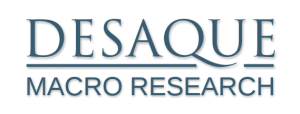The Fed Gets Even More Transparent The decision by the Federal Open Market Committee (FOMC) to embrace policy target thresholds has taken monetary policy transparency to a new level. I recently alluded that the FOMC could embrace such a tactic in early-2013. The FOMC also decided to raise the ante on its asset purchase programme […]
Political Revenge on the Bank of Japan?
Politics Hijacks Monetary Policy in Japan Financial markets have always been wary of political interference in the running of central banks. Profligate politicians cannot be trusted to ensure price stability. Independent central banks have tended to preside over stronger exchange rates and lower inflation than those subject to political pressure. While central banks wish to […]
US Financial Asset Returns Under Fiscal Policy Tightening
Avoiding the Fiscal Cliff and Pleasing Financial Markets We are now firmly in the lame duck session of Congress and financial markets will continue to be wary about lack of progress in postponing the fiscal cliff. Some fiscal policy tightening will happen in 2013. At the moment, markets seem to be discounting tightening of 1% […]
Into the Unknown: US Monetary Policy under the Fiscal Cliff Scenario
Will the Fiscal Cliff Force Further Quantitative Easing? Now that the US Presidential election is over, financial markets are focussing on the prospect of a full-blown fiscal cliff scenario engulfing the economy. Observers agree that such an outcome would be disastrous: the economy would fall into recession, producing a renewed rise in unemployment. It would […]
The Economic and Financial Implications of the 2012 US Presidential Election
Perceptions Die Hard The uncertain outcome to the US Presidential election was cited by many commentators as to why corporate risk-taking has remained subdued in 2012. The political landscape is essentially the same as to what prevailed prior to the election. There was a widely-held presumption that a Romney victory would be bullish for equities, […]
Weaker US Potential GDP Growth and Deleveraging: Formidable Challenges Whoever Wins
Is the US Economy Stuck in a 2% Growth Path? The most imposing economic challenge facing the winner of the Presidential election is getting the US economy back on a faster growth path. The economy has been seemingly stuck in second gear since the end of the Great Recession: the average annualised growth rate of […]
US Corporate Profits: Under Greater Scrutiny
US Corporate Profits: Continued Weak Top-line Performance in Q3 We have just completed an important week for corporate profit results for S&P500 companies. The percentage of reporting companies beating EPS estimates remains high (71%), but the percentage of companies beating top-line estimates remains disappointingly low at 36%. The weakness in top-line performance is a continuation […]
China’s New Leaders Face Legacy Issues From 2008 Economic Stimulus
China’s Economy in Q3: Not All Bad News China announced last week that annual real GDP growth slowed to +7.4% in Q3 from +7.6% in Q2. The Chinese government has targeted real GDP growth of +7.5% for the full calendar year of 2012. This official growth target was revised down from +8.0% earlier this year. […]
Massive Liquidity Preference Test the Potency of US Monetary Policy
Global Economic Slowdown: Blame Fiscal Consolidation, Not Monetary Policy In the wake of the most serious global economic slowdown since the end of the Great Recession, central banks in advanced economies have seemingly run out of ammunition in terms of being able to use interest rates to fine tune aggregate demand. The fact that short-term […]
Placing the US Fiscal Cliff into Context
Economic Implications of the Fiscal Cliff Now that the Fed has invoked a third tranche of quantitative easing, financial markets have refocused their attention on the possible economic and financial implications of an unfolding US fiscal cliff scenario. Under current legislation, US fiscal policy will be tightened by 3% of GDP in 2013. Such a […]






